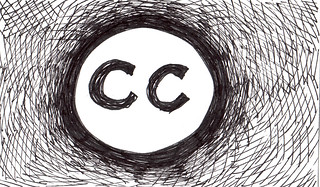 |
| flickr user nirak |
In the late 60’s, Stewart Brown posited that information wants to be expensive and free at the same time. That the tension between these competing desires will not go away, they will always fight one another. This continues to be true, and Aaraon Swartz, the young co-founder of reddit found dead in his apartment on Friday, is yet another casualty in that conflict.
To some degree this post is one of those tangential “I was there” articles that come up when some tragedy occurs. I was working on my Library Science masters degree in Boston, and had a staff position as the Stacks Manager for the Architecture and Urban Planning library at MIT, when Aaron hacked us for a bunch of JSTOR articles. At the time the MIT libraries community seemed amused, and the vendor was satisfied when he turned the files over to them.
The Department of Justice, however, went on to press charges. With an attitude characterized by some as a witch hunt, they sustained pressure on Aaron Swartz for what amounted to exploiting a loophole to check out too many books. They continued until, just this past Friday, a truly great man took his life under the relentless threat of decades in prison.
Why call Aaron Swartz a great man? Among many other accomplishments, he helped invent the RSS protocol that brings you this blog, and updates many of your favorite websites. He, as mentioned above, helped found reddit.com, “the front page to the internet,” a site that even the President of the United States uses. Aaron worked on the Creative Commons License that lets people freely share their artistic work while keeping their ownership of it. He also founded Demand Progress, which galvanized the public to demand the defeat of SOPA/PIPA, which would have hobbled how we share content on the internet.
He also was a huge ally of libraries, someone who really got what we’re about. Aaron was a founding force behind open access online library, Openlibrary.org. One that sought to have a wiki page for every book, and share its data with anyone in the world. And he fought against the great paywall database vendors put up to keep information out of the hands of the people who can use it, in favor of those who can pay for it.
Information wants to be free, because it’s the nature of people to share. It also want to be expensive because individuals can make resources valuable by keeping them scarce. But you can help break that tension. If you are in the position to publish your research, think about making it available in an Open Access forum or under a Creative Commons license. There is a wide community of scholars who could benefit from your ideas, but who may not be able to access them otherwise.
Great Post. After reading this post I failed to write any comment.
Just prayers for this family.